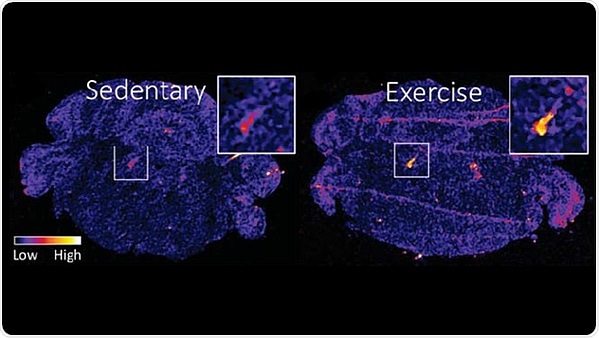Exercise fights off stress by increasing levels of the brain protein galanin, according to research in mice recently published in JNeurosci.

Going on a run during a stressful time does wonders for mental and emotional health. But the stress-relief benefits of exercise go beyond the anecdotal: exercise increases the brain’s resilience to stress. This happens through elevated levels of the neuromodulator galanin, a protein that influences stress and mood and has been implicated in stress-related psychiatric disorders.
In examining the relationship between exercise and stress relief, Tillage et al. measured anxious behaviors in mice 24 hours after a stressful event. Mice that had access to an exercise wheel for three weeks displayed fewer anxious behaviors compared to mice that didn’t exercise. The exercising mice also had elevated galanin levels in the locus coeruleus, a cluster of neurons in the brainstem involved in the stress response. The amount of time the mice spent exercising in the third week correlated with the amount of galanin in the locus coeruleus, which in turn correlated with their degree of stress resilience. Genetically increasing locus coeruleus galanin in sedentary mice recapitulated the beneficial effects of exercise. The increased galanin did not alter other aspects of the animal’s behavior, suggesting galanin may be recruited only during periods of high stress.
Source:
Journal reference:
Tillage, R.P., et al (2020) Chronic environmental or genetic elevation of galanin in noradrenergic neurons confers stress resilience in mice. Journal of Neuroscience. doi.org/10.1523/JNEUROSCI.0973-20.2020.